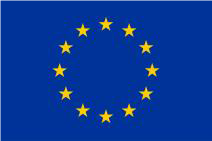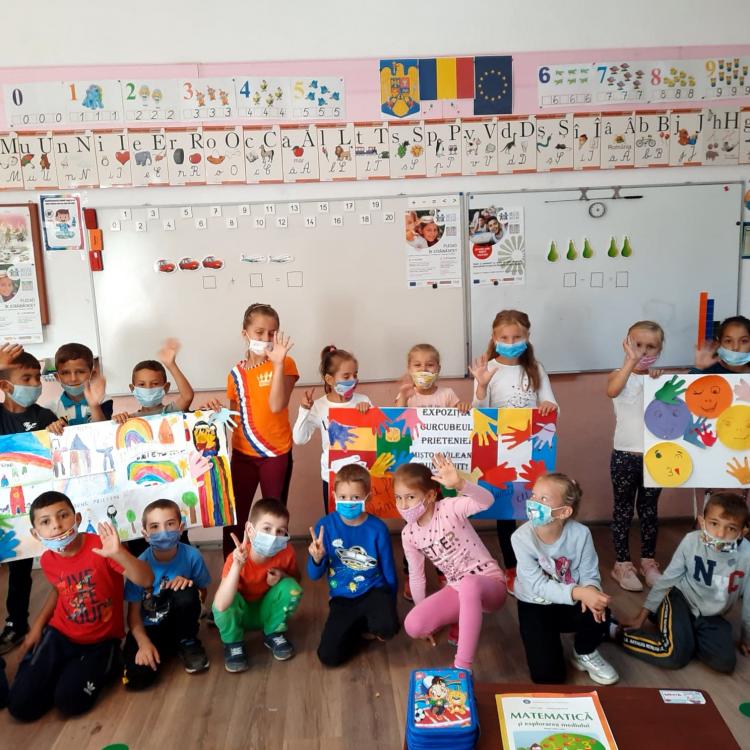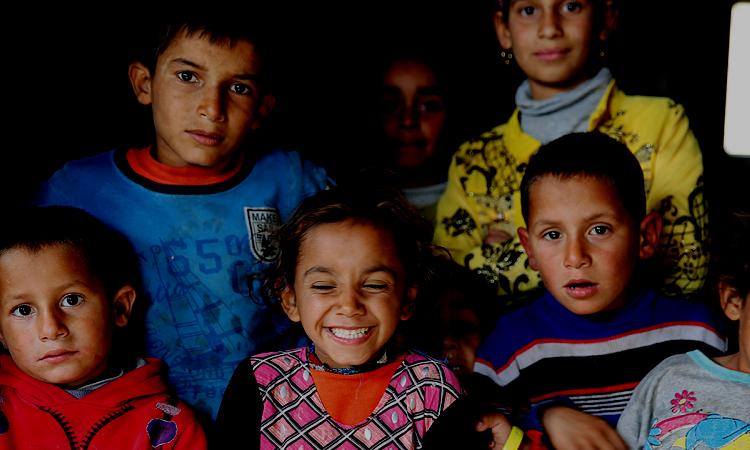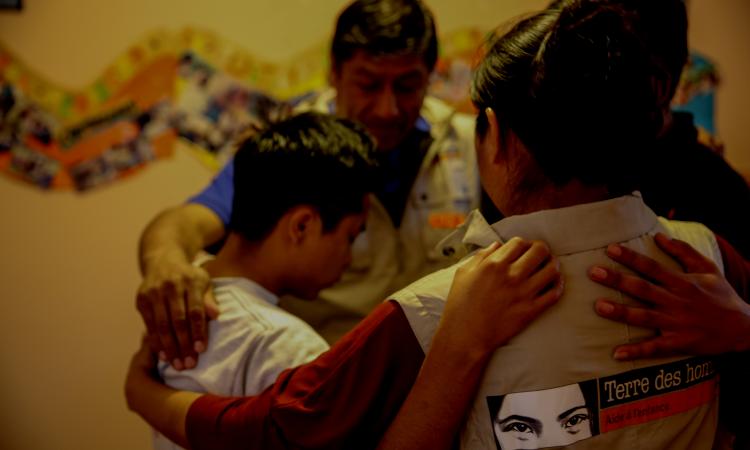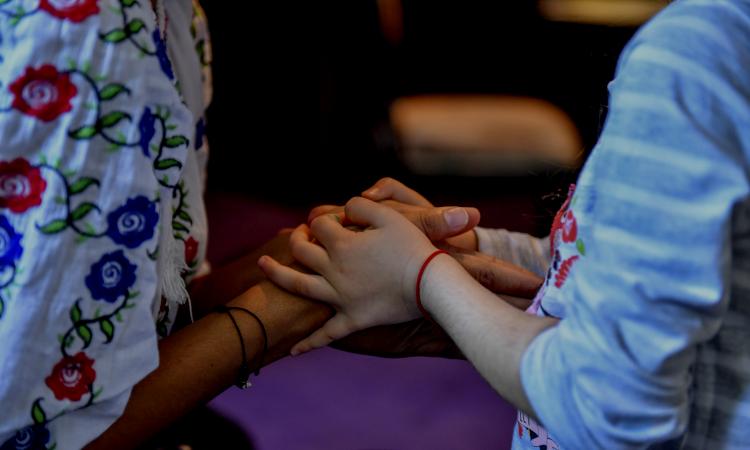Migrant Roma children are often excluded from compulsory education. The lack of coordination between schools in their places of origin and destination, often coupled with discriminatory attitudes, prevent children’s access to non-disruptive and quality education. Terre des hommes (Tdh) and its partners initiated this project to offer them a non-disruptive and quality education.
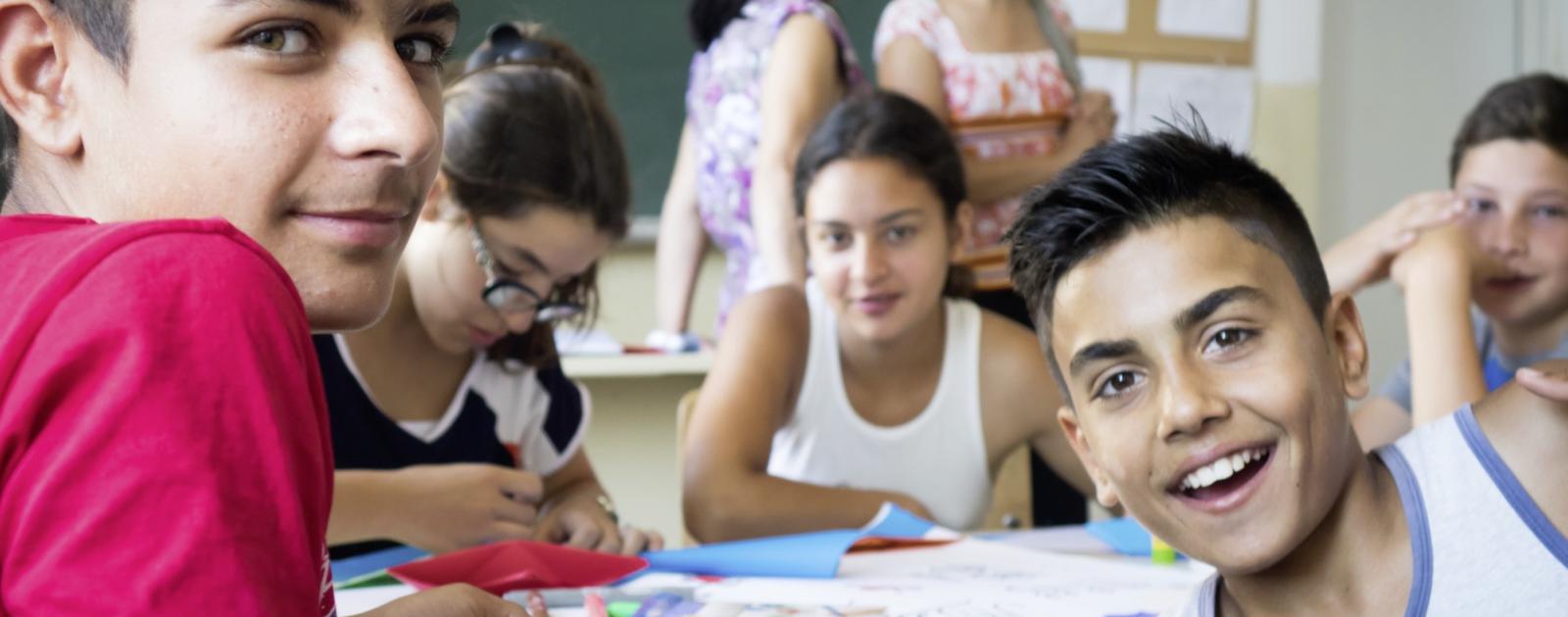
Objectives
This project promotes the integration of migrant Roma children in the education system of three countries affected by their migration: Romania, France, and Spain. It is funded by the European Commission through the Programme “Rights, Equality and Citizenship” and was implemented from 2018 until 2020.
Research shows that Roma are perceived negatively by 41% of the population in Spain and 66% in France. Migration decreases the chances for Roma children to complete compulsory education cycles: 55% of Romanian Roma children between 7 and 10 years old residing in France are not enrolled in school (as opposed to 19% in Romania), and 53% in the case of 11- to 15-year-olds (as opposed to 39% in Romania). Spain also faces difficulties in ensuring compulsory education for mobile families.
By working with AFEJI in France and Fundación Secretariado Gitano (FSG) in Spain, Tdh aims to develop transnational cooperation mechanisms between 60 schools and ensure the integration of 200 Roma children in non-disruptive compulsory education. The “MISTO AVILEAN!” (in Romani language, “Welcome!”) project develops a model of cooperation and integration that can be extended to other schools and states.
Through discussions with Roma families and education professionals, we identify the difficulties in ensuring the school enrolment of migrant Roma children in three EU member states: Romania, Spain and France. These obstacles are tackled through a transnational cooperation mechanism created between education professionals and institutions in Roma families’ places of origin and destination. By involving national and local authorities, we develop documents and procedures supporting the transnational monitoring of migrant children in education. The mechanism aims to help schools provide non-discriminatory and non-disruptive compulsory education for Roma children (including those who are undocumented).
The limited knowledge of education professionals and limited practice in working with migrant Roma families is one of the difficulties related to low school enrolment of Roma children. After developing specific tools and methods, we will train 240 teachers and school staff to provide culturally sensitive and adapted curricular content. An important aspect is to offer professionals more information on Roma culture and social organisation, anti-Roma prejudice, and national and EU anti-discrimination legislation. Additionally, a digital-based training programme will be set up on ChildHub to promote the use of positive motivation in education for Roma children, encouraging mutual learning and exchange.
Proiectul este finanțat de Comisia Europeană prin Programul „Drepturi, egalitate și cetățenie” (2014-2020).
